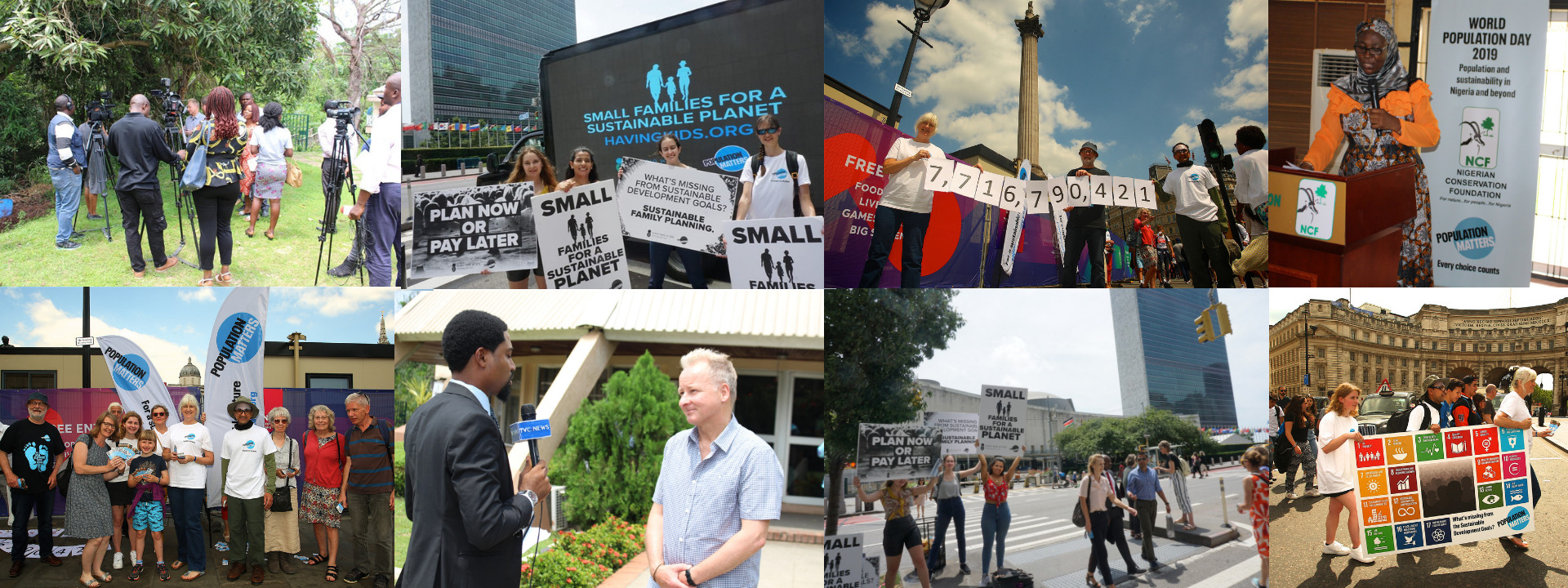
Going global on World Population Day
This World Population Day, 11 July 2019, Population Matters went global by running events in three continents. Thanks to our supporters and allies, we had a very successful day in Lagos, Nigeria, London, UK and New York, USA, developing new partnerships, raising awareness of population issues, and pushing them up the international agenda.
We received more media coverage than ever before, with articles published in influential outlets around the world, including in the UK, Uganda, Central America and France. You can see some examples on our media coverage page.
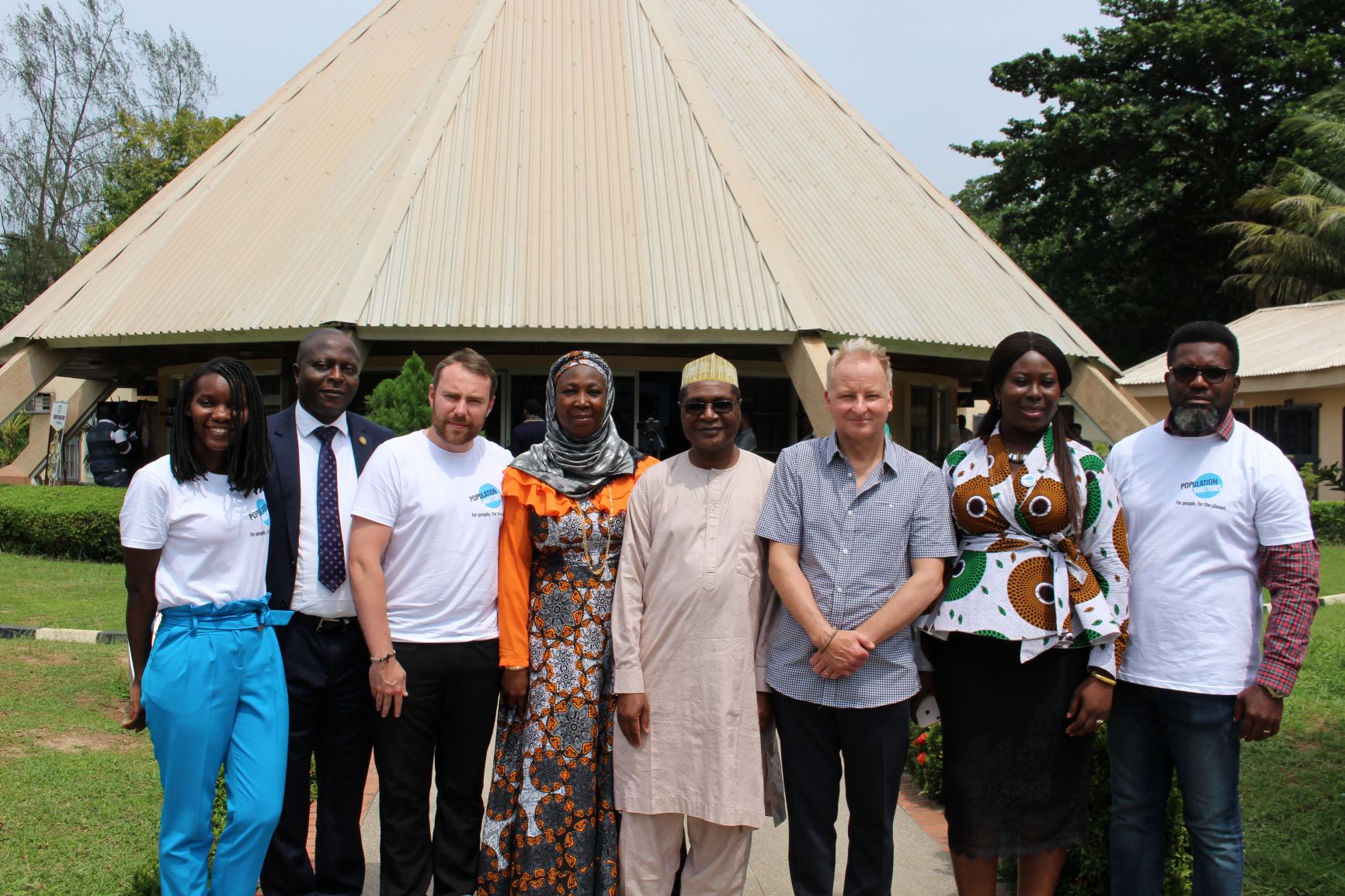
Lagos
We were honoured to co-host the World Population Day forum, Population and sustainability in Nigeria and beyond, with the Nigerian Conservation Foundation (NCF). Attended by more than 100 people, the expert panel included representatives from Nigerian environmental groups, the Nigerian Population Commission and the Lagos State government.
Nigeria is Africa’s most populous country and seventh largest globally, with a current population of 200 million people projected to grow to over 400 million by 2050. Rich in oil and other resources, Nigeria boasts the largest economy on the continent, yet half of its people live on less than $2 a day, and with the highest rate of deforestation in the world, that economic growth is neither equitable nor sustainable.
NCF’s Director-General, Dr Muhtari Aminu-Kano was unequivocal about population growth being a primary driver of biodiversity loss, challenging conservation organisations world-wide to address the issue, “If we don’t discuss it, who will?”
“Worldwide, biodiversity is under unprecedented pressure – we cannot ignore the role of human population growth in endangering our precious, shared natural heritage. Our goal is to raise the profile of this issue nationally, and explore how we can work with partners overseas to find solutions.”
– Joseph Onoja, Director, Technical Programmes, NCF
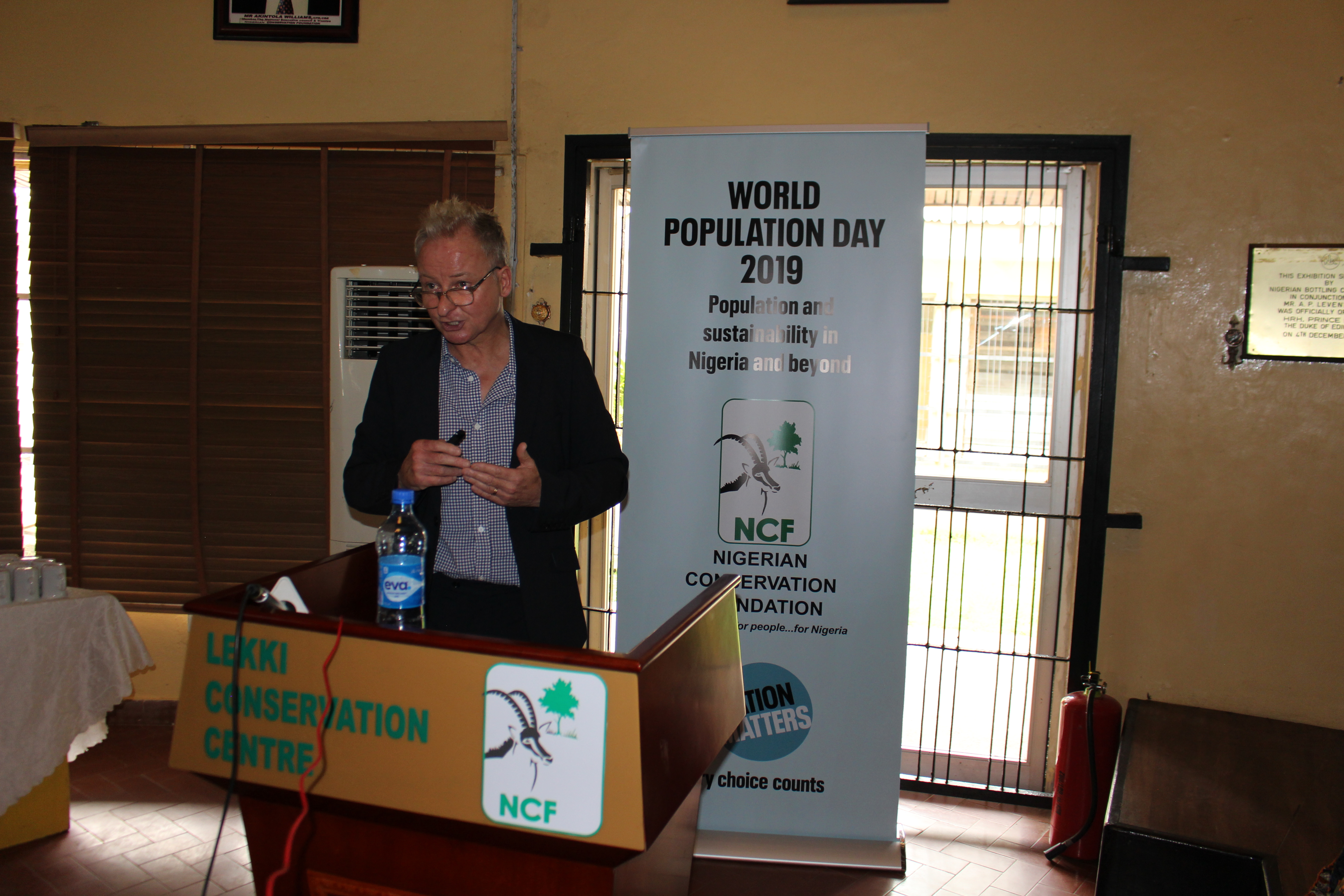
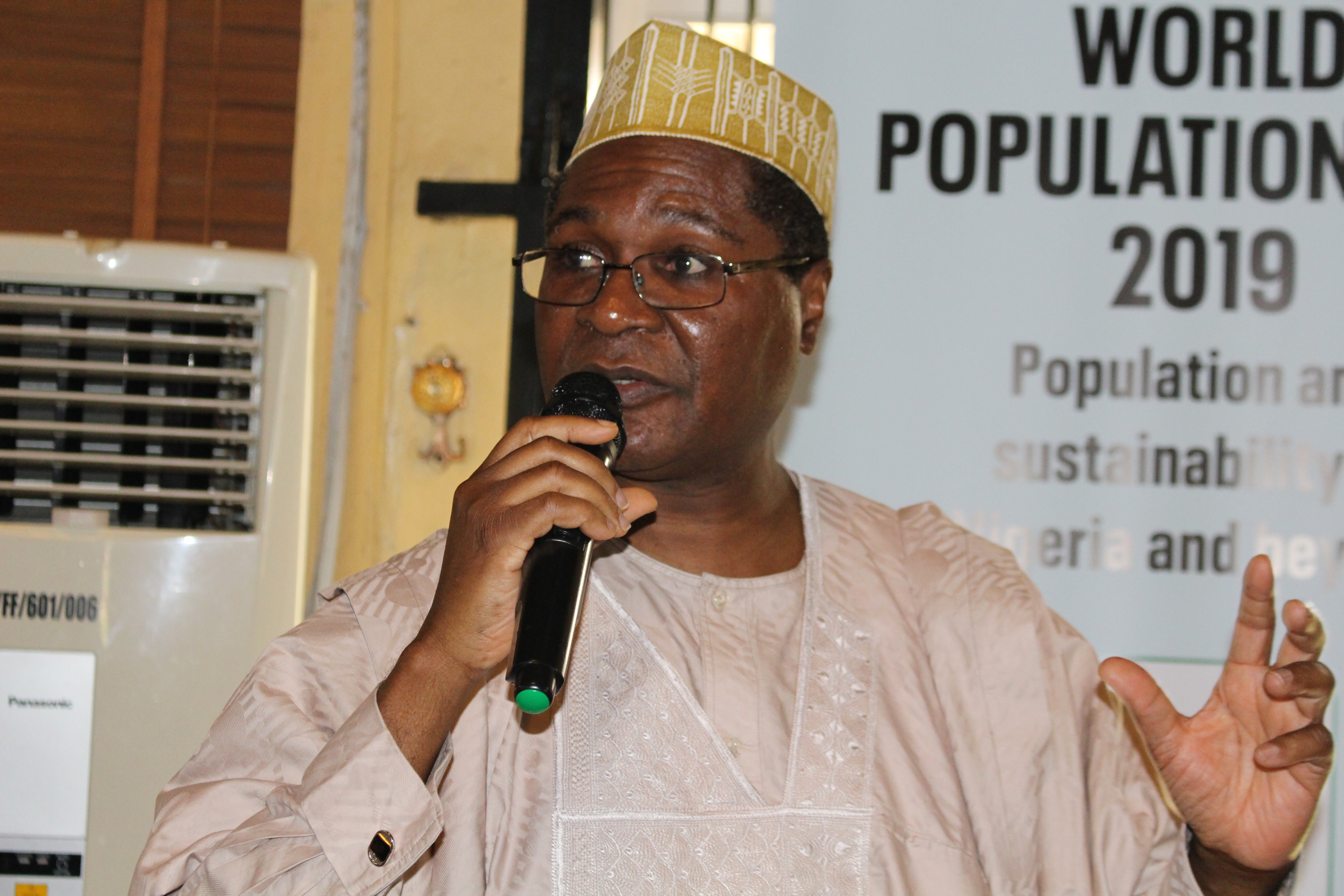
PM Director Robin Maynard addressed the ‘and beyond’ part of the title, giving the global overview, and highlighting the problem of excessive consumption in the Global North.
The willingness of people to discuss the issue was hugely heartening, not least Nigeria’s Environment Minister who, without notes, demonstrated in-depth understanding, referring ironically to “our experimental growth”. He affirmed the ‘double-dividend’ benefits to people and planet of enabling girls access to education and family planning, whilst acknowledging the lack of progress in reducing average fertility rates from over six children per woman in the 1970s to the target set in the 1980s of four or fewer by 2000. Average fertility still stands at over five children per woman 40 years on.
Following this very successful first joint-event, PM and NCF have agreed in principle to build-on and develop our partnership. The event received a lot of positive national media coverage, including the segment from TVC News Nigeria below. Population Matters’ own Florence Blondel even temporarily reverted to her previous journalistic role, and filed a TV report for national news in her home country, Uganda.
London
In London, our message of ‘No sustainable development without sustainable population’ was hard to miss. With the help of members of our London Local Group, Alistair, our Head of Campaigns and Communications, took an eye-catching poster board to the Department of International Development (DfID) highlighting the issue. The colourful image generated a lot of attention and discussion among tourists and Londoners enjoying a sunny day in Trafalgar Square.
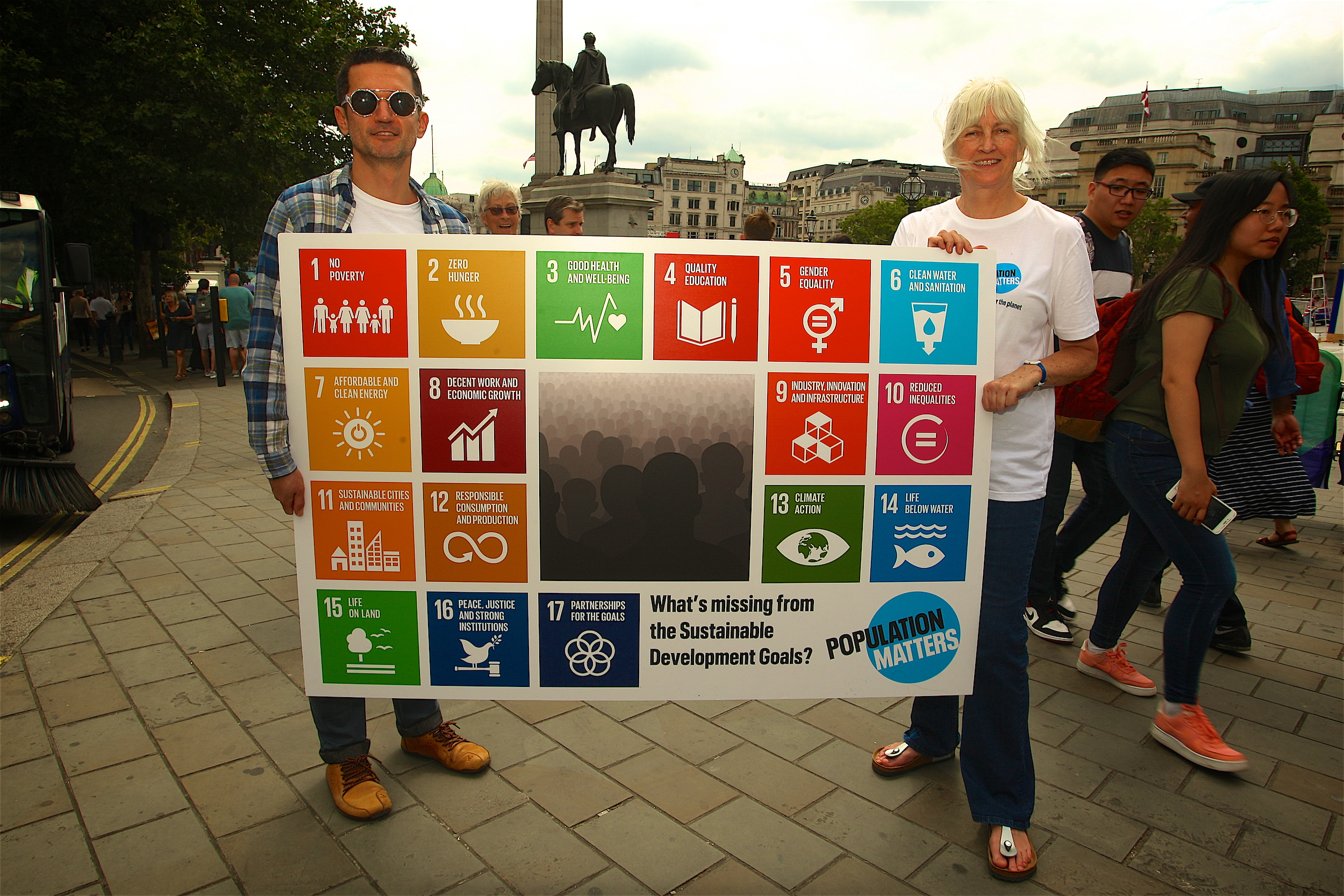
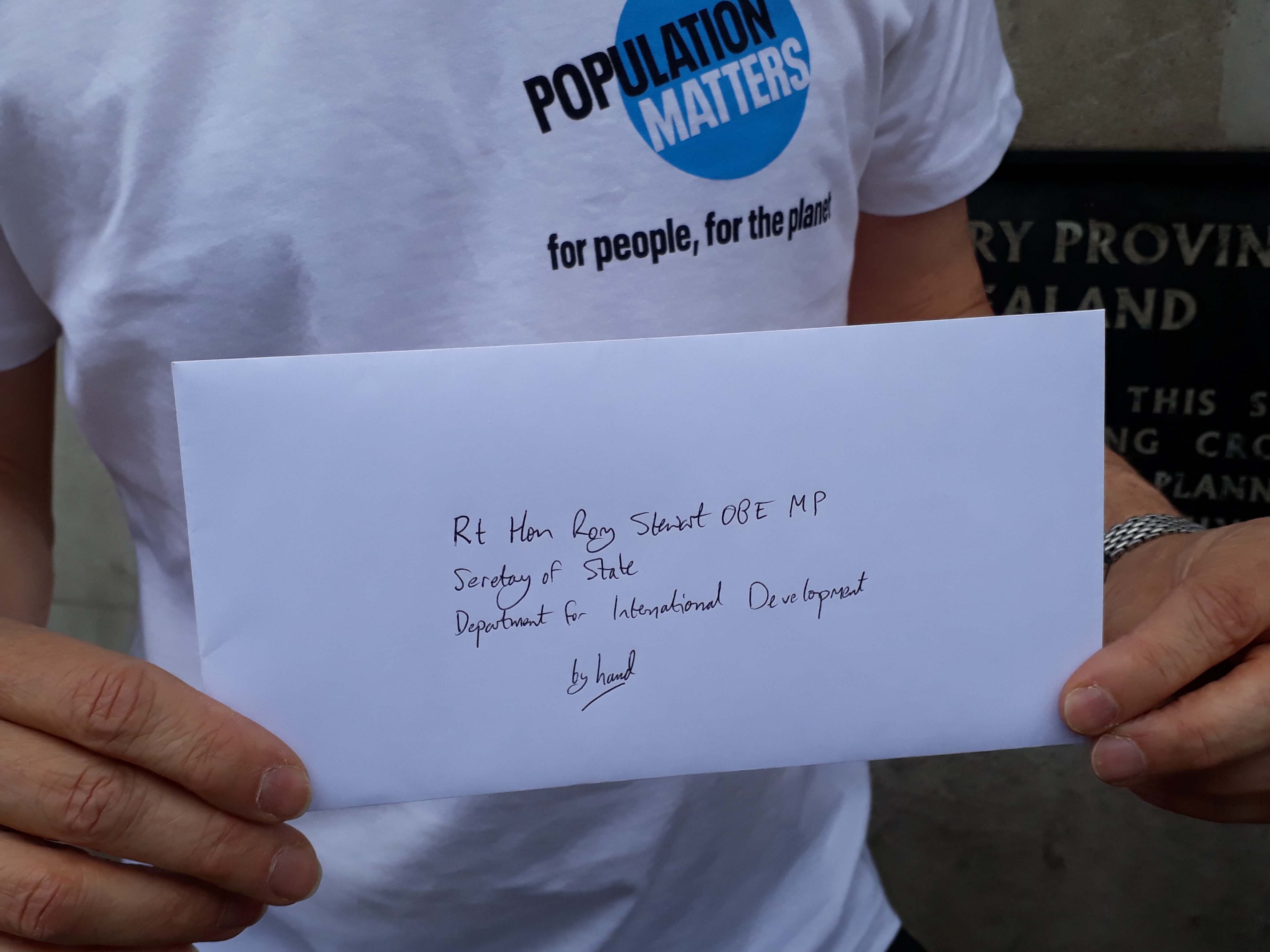
At DfID, the PM activists also hand-delivered a letter for DfID minister Rory Stewart, who is now attending the United Nations meeting on the Sustainable Development Goals in New York. The letter commended the UK government for the good work it has done promoting family planning and women’s empowerment internationally and called on it to “take the opportunity at the HLPF to engage your international colleagues in discussions on population, and to work towards international agreement and co-operation that will allow us all to meet the SDGs’ goal of building a better world for people and our planet by 2030.”
London’s main newspaper, the Evening Standard, also carried an interview with Alistair. He told the paper
“This isn’t just about countries in Africa with high fertility rates – in the UK we produce 60 times the amount of greenhouse gas emissions as someone in Niger. We have to foster the recognition here that choosing fewer children means a better life for the children we have.”
The interview followed a powerful opinion piece by The Observer‘s environment editor in advance of WPD.
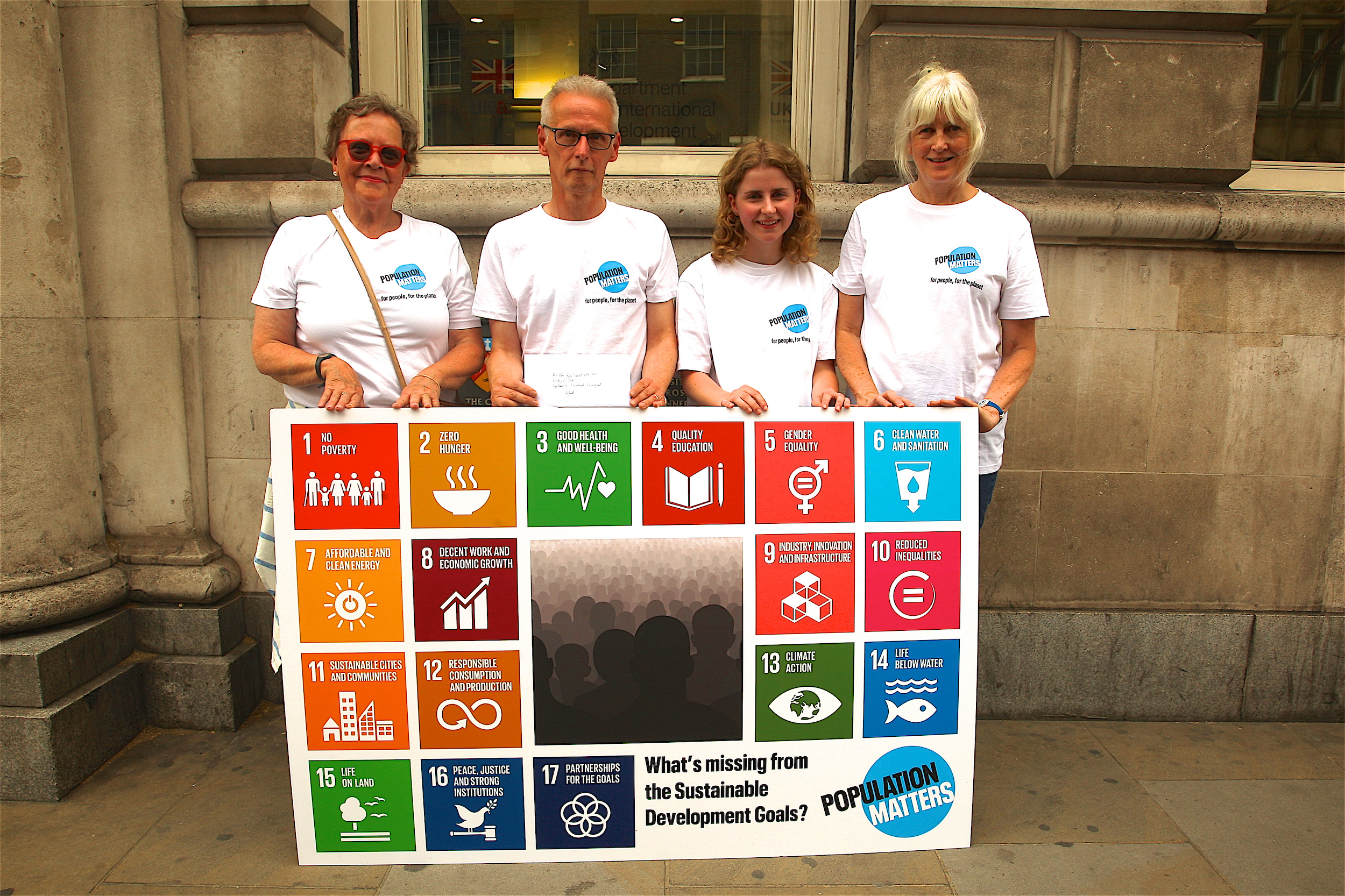
New York
In New York we teamed up with Having Kids, staging a peaceful demonstration outside the United Nations Headquarters. Our goal was to urge UN Secretary-General António Guterres to recommend smaller families as a vital step in attaining the SDGs. Our demonstration followed a letter endorsed by a number of organisations and sent to Mr Guterres last week, calling on him to recognise that the protection of future generations depends on a model of family planning that puts children and their future lives at its heart.
Our message was reinforced by a head-turning digivan (also a big hit on World Population Day in London last year), which reached thousands of New Yorkers with its highly visible ‘Small families for a sustainable planet’ display.
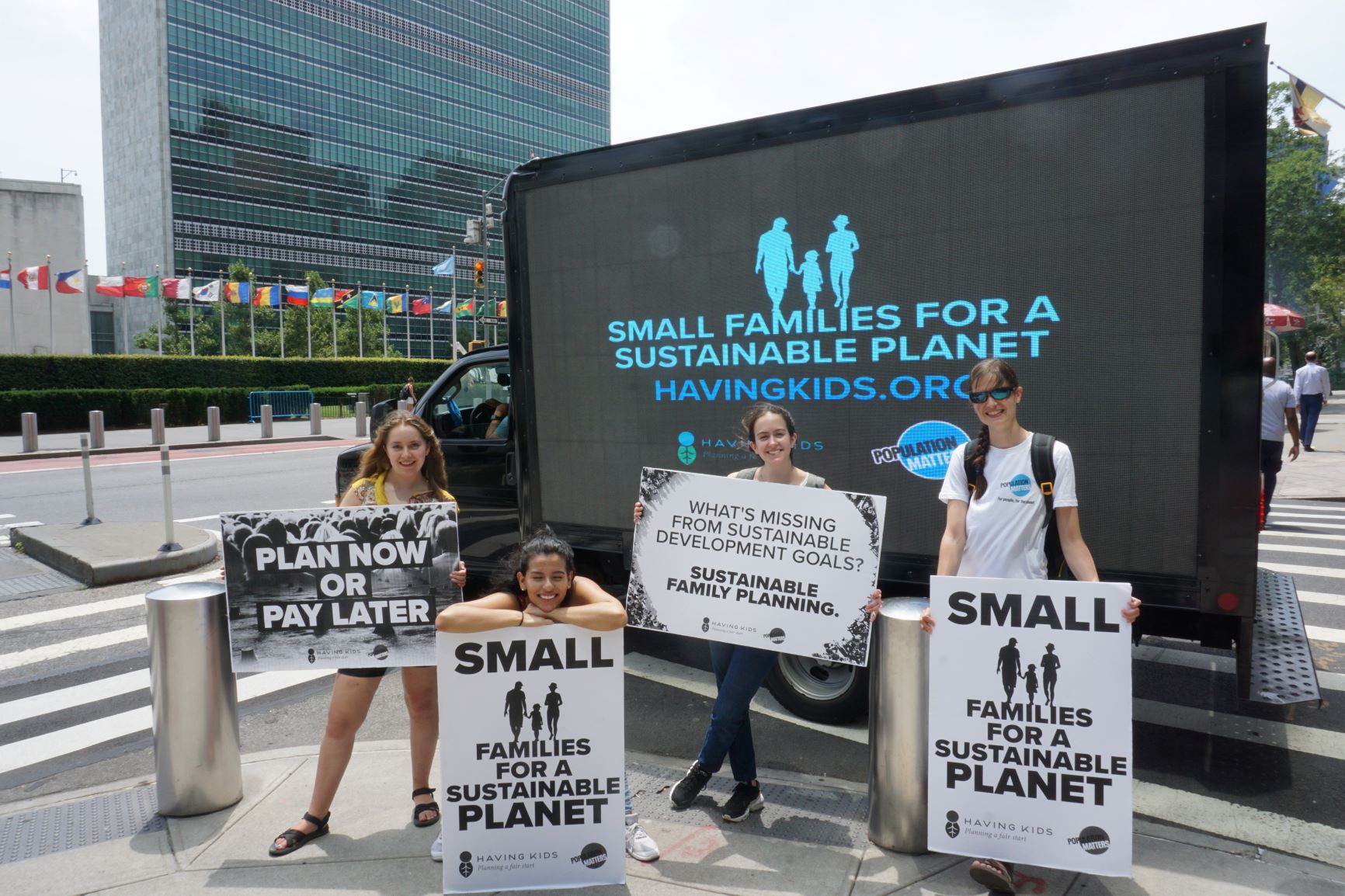
Armed with placards and flyers, we positioned ourselves at a busy crosswalk just outside the UN building and engaged people in conversation about the benefits of smaller families and how sustainable development requires a sustainable population. Many passers-by voiced their agreement, and we had good conversations with several employees of international organisations.
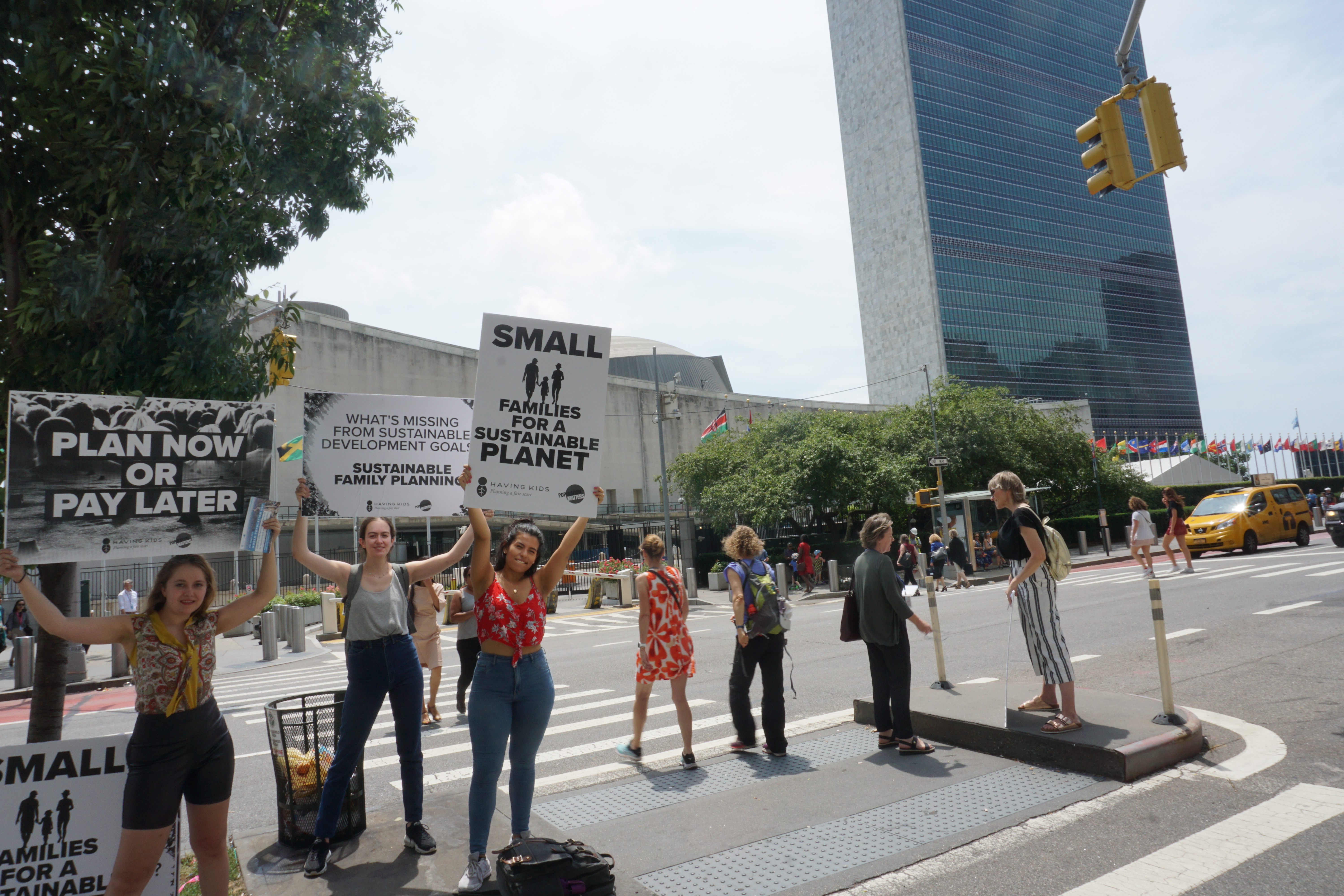
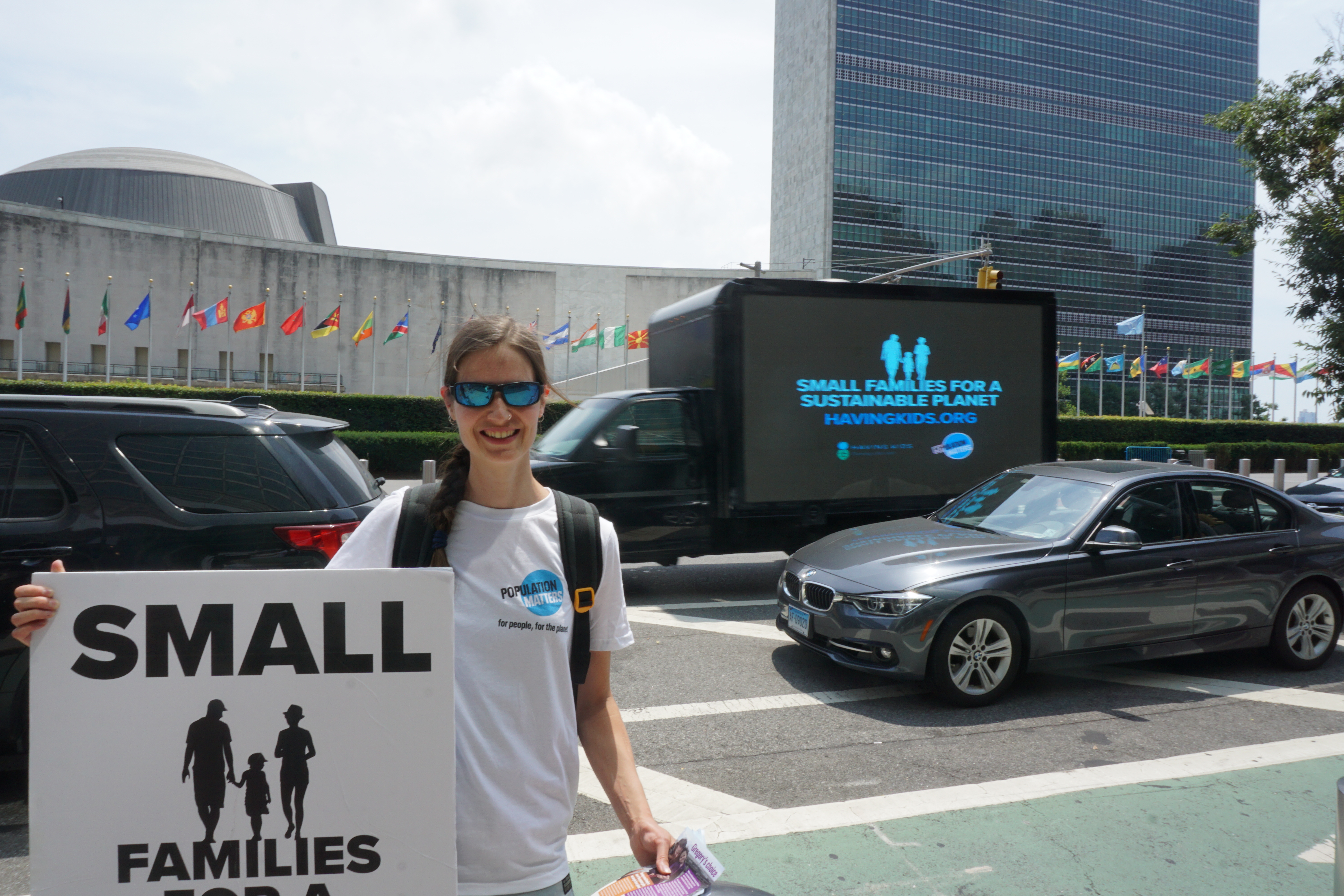
We were delighted with the success of our first-ever ‘global’ World Population Day and would like to thank everyone who made it possible by donating to our winter appeal. We look forward to next year and an ever-expanding international reach.
[NB: All travel emissions were offset by corresponding donations to offsetting schemes.]
TAKE ACTION
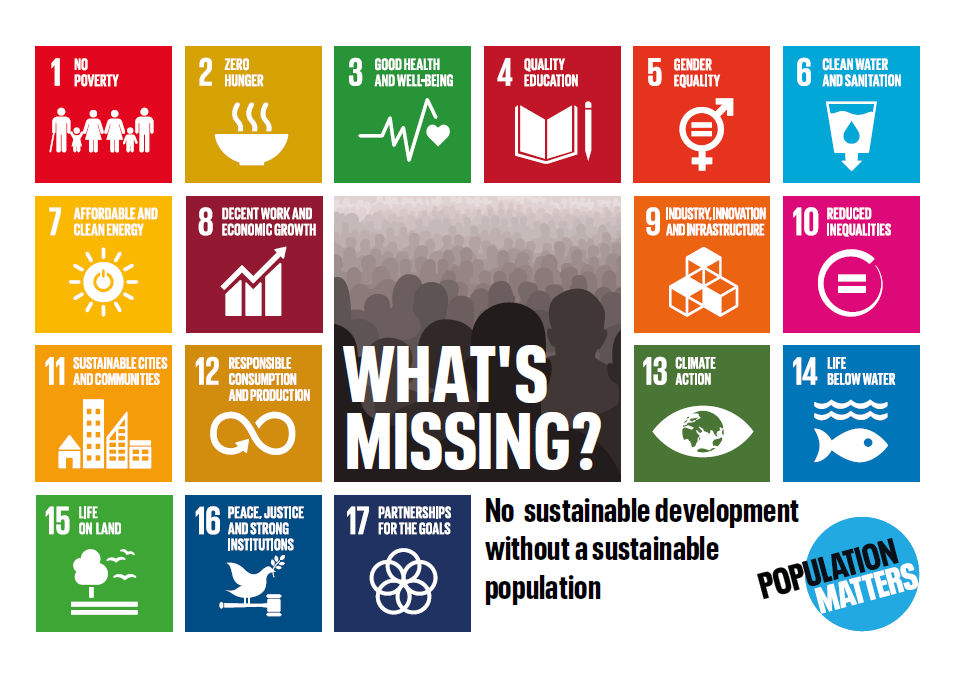
Sign our online petition urging the UN to incorporate positive, empowering action to allow and encourage people to choose smaller families at the heart of its programme.

